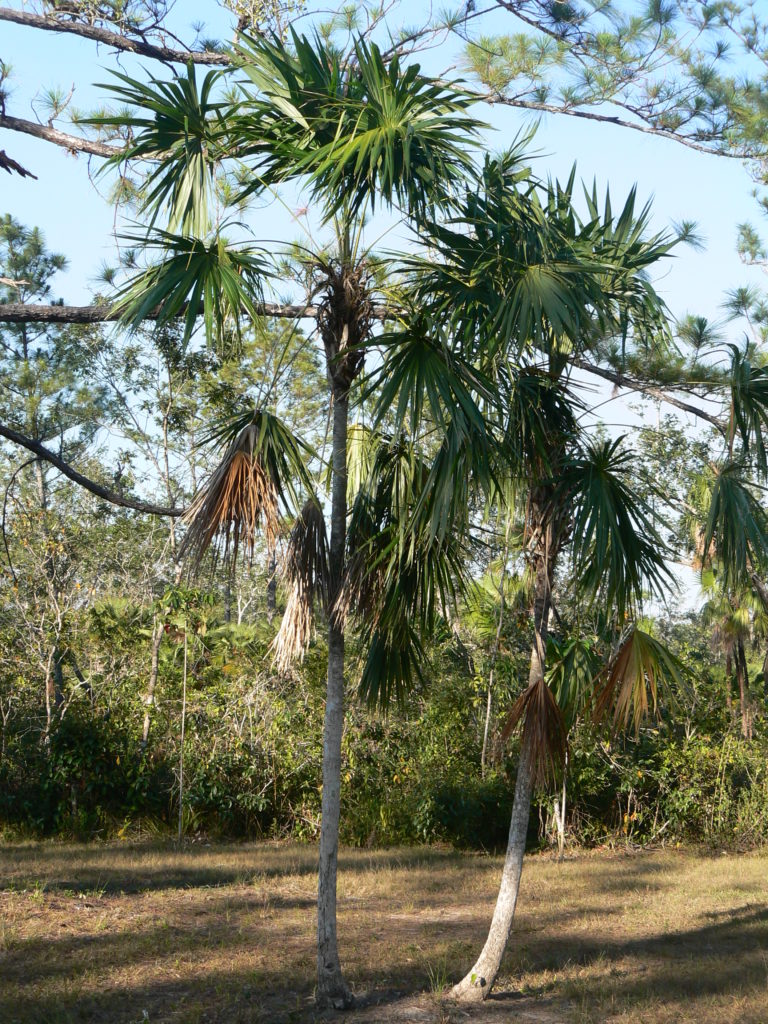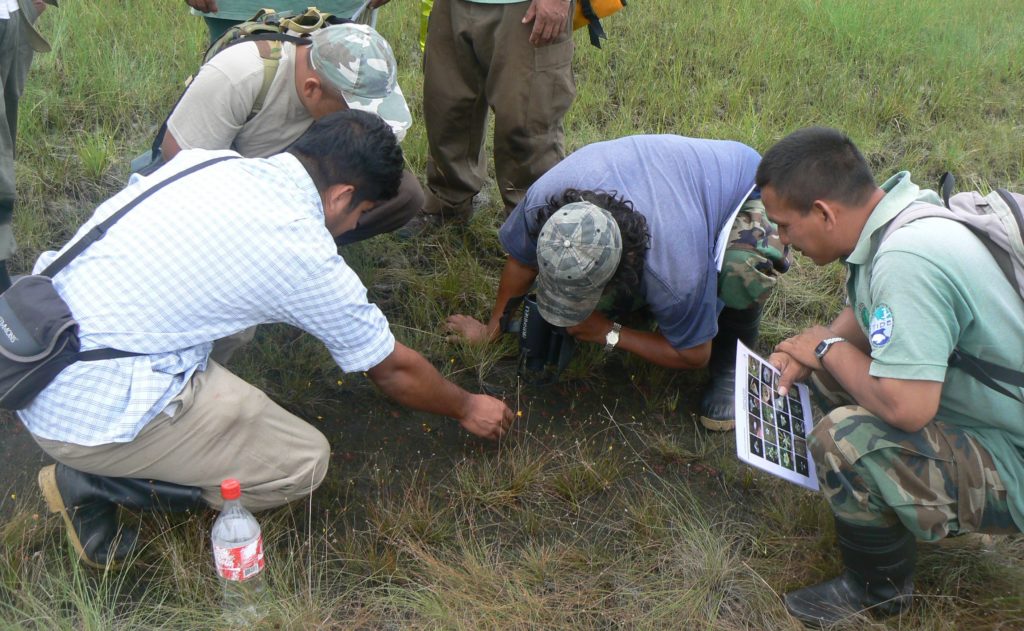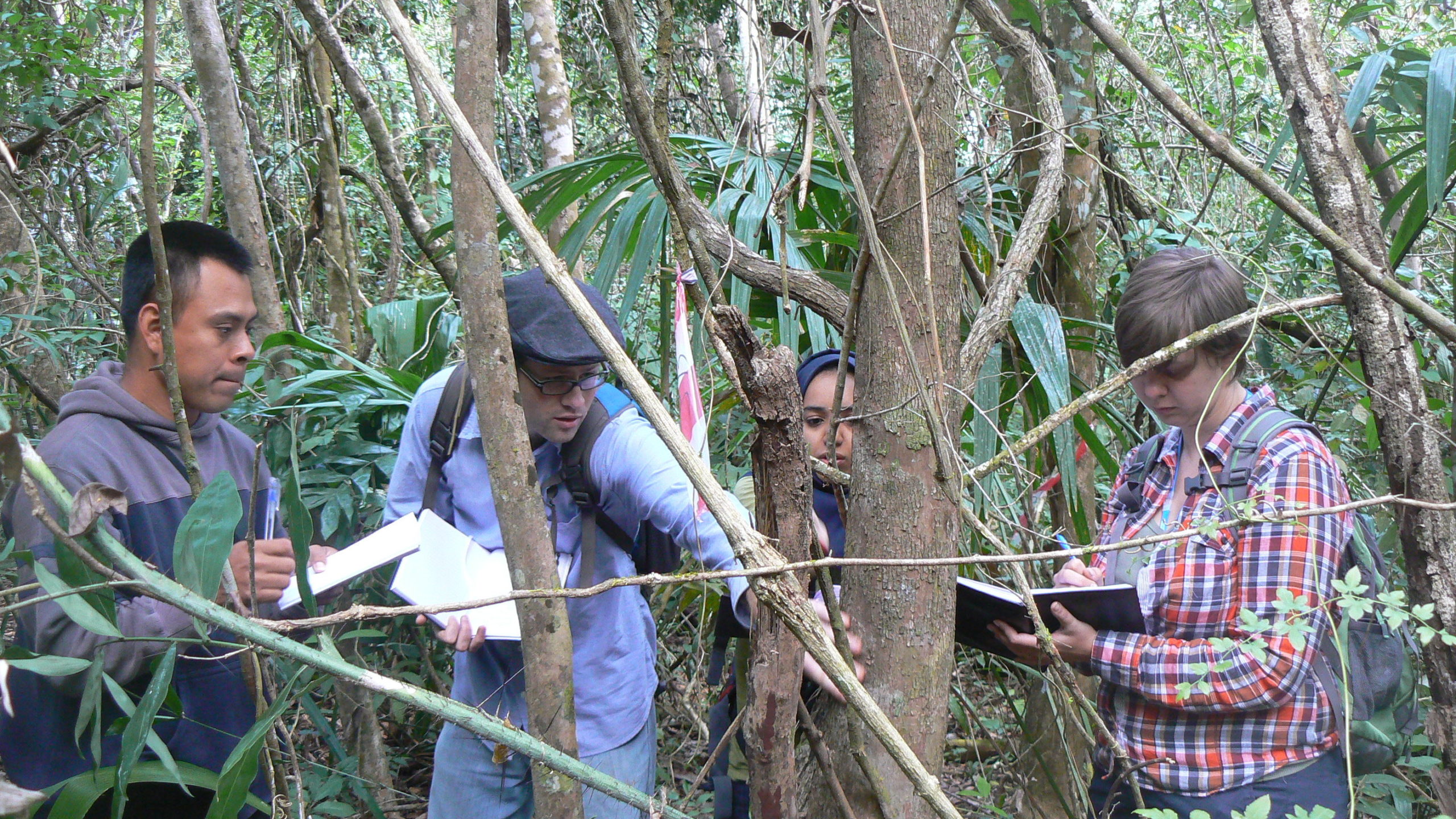
The graceful and slender silver palmetto, Schippia concolor, is a rare palm found only in the forests and savannas of central and southern Belize that is considered to be Vulnerable to extinction. However, like a lot of native and endemic trees, there is not much local expertise to reliably differentiate this palm from other small palms native to Belize such as the savanna palmetto (Acoelorraphe wrightii) or the coastal saltwater palmetto (Thrinax radiata). The case is much worse for the huge diversity of broadleaf trees species which are used as timber, medicine and food yet are globally rare and under threat.
Belize is a small, English-speaking tropical country in Central America, nestled between Mexico and Guatemala and the azure waters of the Caribbean Sea. Like a lot of countries considered to be a Biodiversity Hotspot, there is an imbalance between the experts (primarily from the global north) who can reliably identify the diverse and globally important flora (largely in the global south). As part of efforts to address this imbalance it is vital that institutions in the global north help repatriate knowledge to the countries who need it the most. This includes collaborating with local researchers, but also working with the communities on the frontline of the intertwined and escalating threats of the biodiversity crisis, the climate emergency and food insecurity.

RBGE has a significant recent history of botanical training in Belize, through its flagship MSc program and the work of former graduates. Currently, RBGE is part of an ongoing Darwin Innovation Grant based in Belize, which is led by Belize Botanic Gardens to develop and train local smallholders in agroforestry. As part of this project, RBGE is working with Belize Botanic Gardens to run plant identification training workshops. Participants will learn the principles of plant identification with a focus on useful and endemic species. However, we know that we can’t reach everyone during this short project, as there is a huge desire for training at all levels across the conservation sector, education system and among the general public. So, to make the biggest impact, the training will be targeted at educators based in local partner organisations and conservation professionals within the government and NGO-sector.
Hopefully by their end of their training this June, our students will feel confident to tell their silver palmetto from their saltwater palmetto.

The Darwin Initiative is a UK government grants scheme that helps conserve biodiversity and support the communities that live alongside it through locally led projects worldwide. It is one of the Biodiversity Challenge Funds (BCFs) – the collective name for three of the UK Government’s competitive grants that also includes the Illegal Wildlife Trade Challenge Fund and Darwin Plus, aimed at conserving biodiversity and safeguarding the environment for local people. Since 1993, the Darwin Initiative has awarded over £230m to more than 1,275 projects across 159 countries.
This two-year project is funded as a Darwin Innovation Award, https://www.darwininitiative.org.uk/project/DARNV020/
Useful links:
